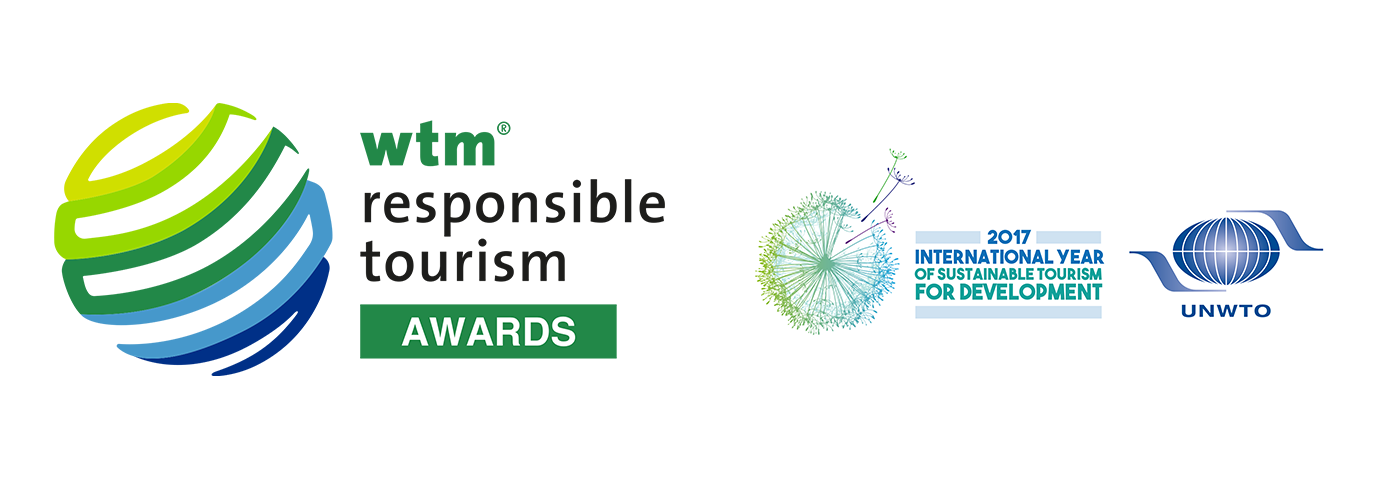Word Responsible Tourism Awards have been presented at World Travel Market in London since 2004. Each year we have seen the bar rise, competition has been tough and the successive panels of judges have debated long and hard about the category and overall winners. There is a legacy site where you can find details of all the previous winners going back to 2004. The awards were created to recognise and celebrate leaders in Responsible Tourism and to challenge encourage and inspire others to take responsibility and to do more.
ResponsibleTravel.com are rightly proud of what the Awards have achieved, they are refocusing their efforts as leaders in Responsible Tourism prioritising pioneering creative projects through their business to deliver change through their activism and Trip for a Trip scheme.
World Travel Market has picked up the baton and taken over the organising of the Awards. Partners since 2004 and with extensive knowledge and experience of their predecessor, the Awards will continue to be presented at WTM London, the global Awards, and at WTM Africa. The Indian and Irish Awards will continue as the family of Responsible Tourism Awards grows – there is a session in the Responsible Tourism Theatre at WTM (Tuesday 17:15) to discuss the future growth of the Awards programme – come along if you are interested.
This year has seen a step change. Recognising the UN’s International Year on Sustainable Tourism for Development and UNWTO’s celebration of the contribution which tourism makes to development and the importance of the UN’s Sustainable Development Goals, the SDGs. This year we challenged businesses, destinations and organisations to transparently report the outcomes and impacts of their efforts to make tourism more sustainable. The judges are looking to recognise a range of approaches to reporting impact and communicating it to local people, consumers, and governments.
There is no established system for Responsible Tourism reporting, different approaches are being developed and new ones will emerge. This diversity is an inevitable and desirable consequence of the fundamental principle of Responsible Tourism: that issues, their salience and importance, vary from place to place. First determine what matters locally, what issues you can address and then, alone or with others, address them. We want to encourage more tourism businesses and destinations to publish details of their outcomes and impacts.
Every year we have seen improvements in the standard of evidence of the outcomes and impacts of the contribution which businesses, organisations and destinations make to the sustainable development of the places the industry operates in and which we visit and enjoy as tourists. This year we are going to see a step change; we have some very innovative and impressive examples of how the sector can demonstrate its positive impacts amongst the applicants and from four continents.
It is no longer enough to assert that you are planning to do the right thing. Aspiration alone is not enough. Responsible Tourism requires transparent reporting of what the business, destination or organisation is taking responsibility for, why those issues have been prioritised, what has been done, and what has been achieved. Unsubstantiated claims made by those seeking to be recognised for their leadership in Responsible Tourism are not enough. In the same way, unsubstantiated criticism of others based on innuendo is not acceptable either. Responsible Tourism requires respect for evidence
The finalists will be announced at the end of September – the Awards will be presented at WTM London on November 8th, as usual, we shall publish the judges’ reasons, prepare to be inspired and challenged.




